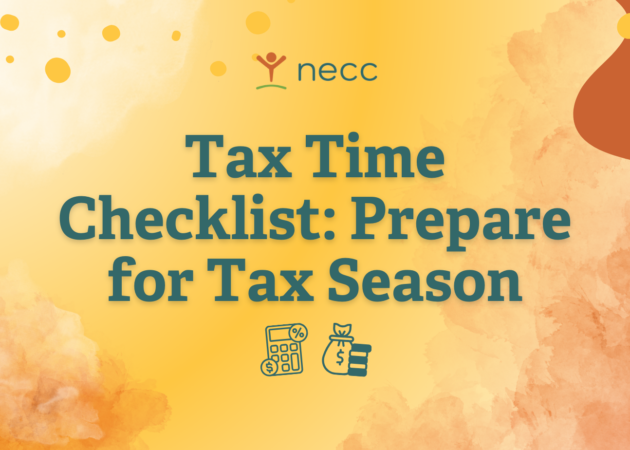Get ready to file your taxes!
Ready to tackle the upcoming tax season? Get organized and prepared with this handy checklist to make the process smoother and achieve your financial goals. For your convenience, our friends at Brightwheel have produced a thorough, printable guide to help you minimize the stress associated with tax season. With the proper checklist, the filing process becomes a breeze!
Here are a few essentials to get you started:
- Note the tax deadline
- Gather the appropriate tax forms
- Organize your business records
- Gather receipts for business-related expenses
- And remember, if necessary, you can always request an extension
Note the tax deadline
Stay organized and never miss a deadline! Find all the necessary due dates for your business below.
- January 31, 2024: W-2 forms and 1099s sent out
- March 1, 2024: 1099-MISC and 1096 forms filed (if paper filing)
- March 15, 2024: S Corporations, partnerships, and multi-member LLCs filed
- March 31, 2024: 1099-MISC filed (if electronic filing)
- April 15, 2024: Sole proprietorship, Single-member LLCs, and C Corporations filed
Gather the appropriate tax forms
Find the correct tax forms for your business structure and consult a tax professional for expert advice.
Some of the most common tax forms for small businesses:
- Schedule C: Sole proprietorships and single-member LLCs (most ECE businesses will fall in this category)
- Form 1065 and Schedule K1: Partnerships and multi-member LLCs
- Form 1099-MISC: Self-employed business owners
- Form 1120: Corporations and LLCs taxed as corporations
- Form 1120-S: S Corporations
Organize your business records
Get organized and streamline your filing process by gathering these key documents beforehand:
- Income statement
- Balance sheet
- Bank and credit card statements
- Payroll documents
- Last year’s business tax return
- Accounting documents
- Asset purchase details
- Depreciation schedules
- 1099 forms (if applicable)
- Staff training costs
- Recurring operational costs
- Transportation expenses
- Advertising and marketing costs
Gather receipts for business-related expenses
Maximize your savings! As you collect your receipts for business expenses, make sure to explore tax deductions and credits that your child care business may be eligible for. Furthermore, our partners at First Five Nebraska possess extensive information on child care taxes in Nebraska. They have compiled a document clarifying the Nebraska Child Care Contribution Tax Credit Act, which provides a nonrefundable tax credit to individual taxpayers making qualifying monetary contributions to eligible programs.
Common child care business deductions:
- Employee wages
- Advertising
- Childcare supplies
- Safety Supplies
- Furniture and equipment
- Childcare technology
- Classroom Supplies
- Toys and games
- Arts supplies
- Kitchen and cleaning supplies
- Office Supplies
- Food and beverage expenses
- Insurance charges
- Continuing education costs
- Professional licenses and memberships
Business tax credits:
- Staff training costs
- Recurring operational costs
- Transportation expenses
- Advertising and marketing costs
Request an extension, if needed
If tax season has you feeling overwhelmed, remember that filing for an extension is always an option. Take a breath and give yourself the extra time you need.
Here are the due dates for filing for tax extensions based on your business structure:
- March 15, 2024: S Corporations, partnerships, and multi-member LLCs (returns will be due on September 15, 2024)
- April 15, 2024: Sole proprietorship, Single-member LLCs, and C Corporations (returns will be due on October 15, 2024)
Share year-end financial reports with families in your program
Help parents crunch the numbers! Ensure you have transaction reports ready to give to the parents in your program for their personal, year-end tax reporting on early childhood education spending.
Include the following information in the records you send them:
- Date range
- Charges
- Payments
- Your program’s EIN
- Your program’s address
Maximize your tax season as a child care business owner by staying organized and seeking expert support. From record-keeping to deductions, ensure a smooth and compliant process for optimal financial outcomes.
Seeking additional resources?
Discover a comprehensive guide from the National Association for Family Child Care, providing valuable insights to home-based child care providers in English and Spanish. Discover additional tax resources and guidance for early childhood providers and business owners.
Information adapted from mybrightwheel.com. This blog provides general information, but remember that everyone’s legal, tax, and financial situation is unique. For specific advice, consult with your own attorney, CPA, and/or other advisors.


